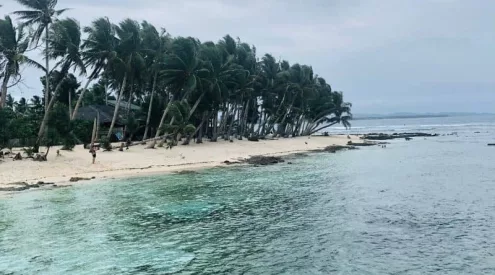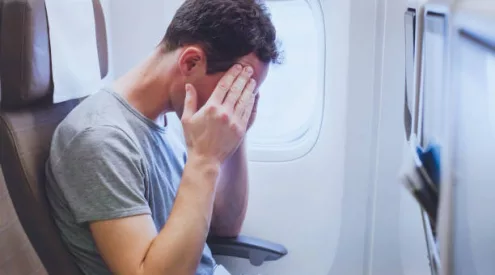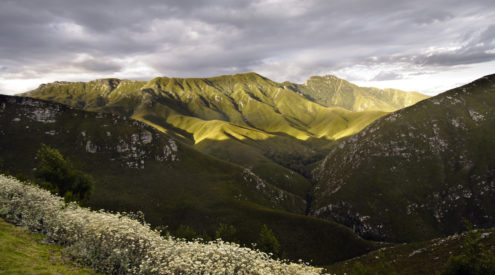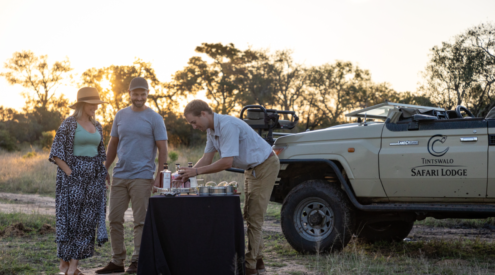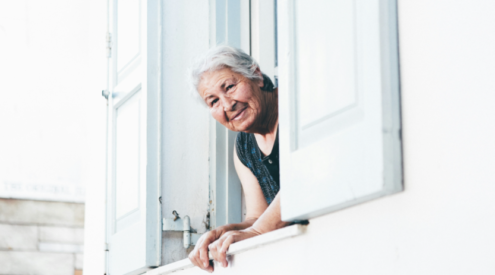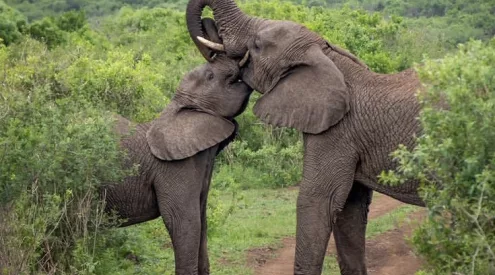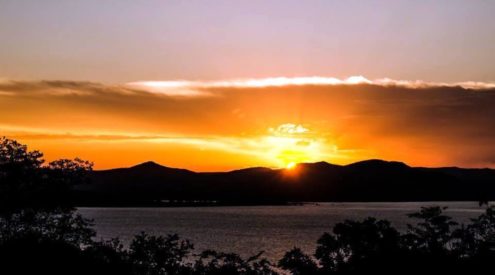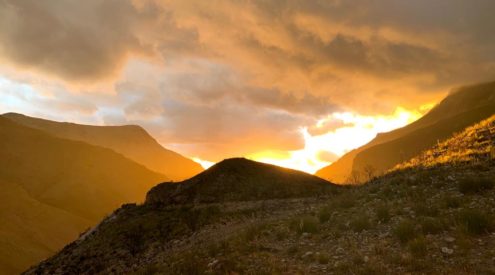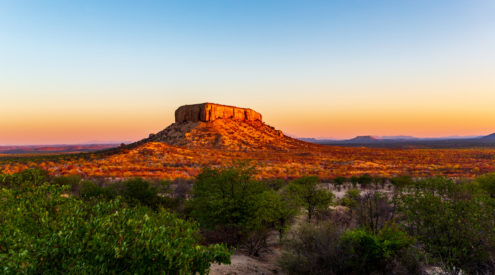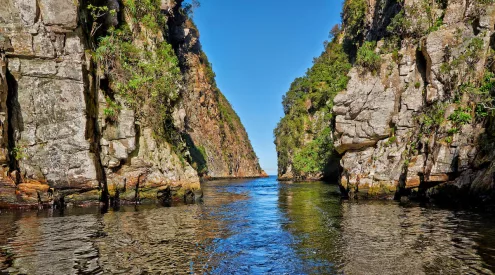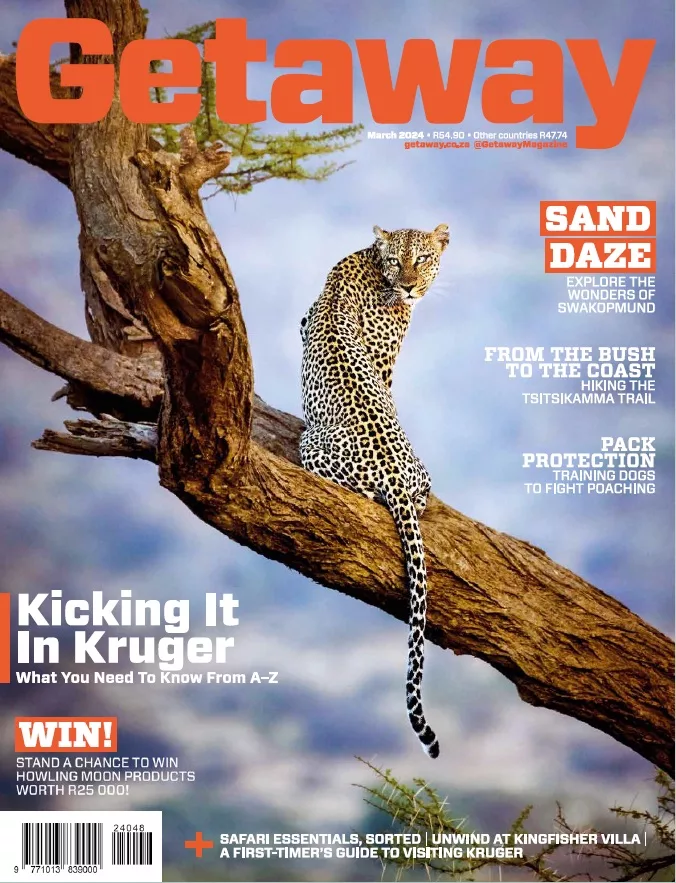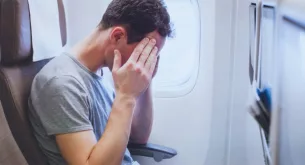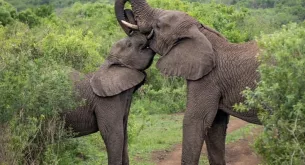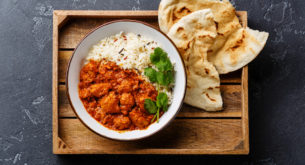Gil Bauman has done the Otter Trail so many times that he has lost count! He has very kindly allowed us to publish his Otter Trail Pack List which has been finely honed over the years to cover all eventualities while being as light as possible. Additional comments by us are in italics. Your backpack should weigh a maximum of a 1/4 of your body weight.
Also see: Photoblog – hiking the Otter Trail
GENERAL
* SANP Permit Wild Card (If you intend on visiting national parks in Southern Africa then it is well worth your while investing in a Wild Card. It allows you unlimited access to all parks, reserves and resorts of the participating partners. Wild Cardholders do not pay daily conservation fees, instead for the annual cost of a Wild Card, they get unlimited access. Ours has already more than paid for itself.)
* Backpack
* Rain Protection Cover for Backpack. High quality, strong and fully water proof because we use it to (also) float the backpack. (We did not have rain protection for one of our backpacks and it was a problem when it rained one day. Instead, for crossing the river we bought survival bags from Cape Union Mart which are basically enormous bin bags made from thicker plastic. However, they were not thick enough as both of our bags tore at the bottom due to sharp rocks at the shoreline, allowing water to leak in! From talking to Gil and our experienced group members, ideally it is best to have a Dry Sack which you put all of your belongings in and then place that inside your backpack. You then use the backpack rain cover to float your bag across rivers.)
* Dry Sack Watertight bag. to fit inside the backpack. Large enough to protect all the important stuff like sleeping bag, clothing, camera, mobile phone, etc.
* 2lt Water Bladder. Much better and more comfortable then bottles. (We took 2 600ml bottles each and although fine, we agree that a bladder would have been more comfortable – a nice-to-have rather than a necessity.)
* Sleeping Bag. Light and small. You sleep inside the huts, can close doors and windows and it gets reasonably warm inside. (We also took a pillow case each which we stuffed with our other clothes at night to make a reasonable pillow.)
* Hat (A light weight sun hat is an essential. Our hats were not ideal but at least they protected us from the sun.)
* Beanie (Winter and Summer) (We think that this is another nice-to-have, not essential.)
* Gloves (Probably only in Winter.)
* Costume (In Australia a.k.a. bathers! Lachlan used quick drying shorts which could be worn walking too.)
* 2 x Boxers. One for the hut and one for walking. See the Falke ones. (We took a little more underwear than this, Gil!)
* Light “Fast Dry” Towel (We took kikoys – effective as quick drying towels and could be used as a scarf when it got cold and as beach cover up.)
* Quick Dry Long Trousers for walking.
* 2 x Quick Dry Tops for walking. One long sleeved and the other short sleeved.
* Long Sleeved Top for the hut.
* Fleece for the hut.
* Tracksuit Bottoms for the hut.
* Rain & Wind Breaker – the Cape Storms one is excellent.
* 2 x Thick Outer Socks
* 2 x Light Inner Socks
* Hiking Boots & Spare Laces – What about trail running shoes? (We wore Hi-Tec walking boots which were very comfortable and had traditional ankle support. However, Ilan, a member of our group, wore trail running shoes, which look just like trainers, at the advice of his physio who said that it is important to have movement in all the joints including the ankles, so this is also a possibility.)
* Light and “Fast Dry” Sandals for the river crossings and for the hut.
* Walking Stick & D loop to secure it. Very useful. (We thought that these were just for old people but they can be incredibly useful when crossing rivers over slippy rocks and also help to prevent injury when going up and down hills.)
* Emergency blanket? (We didn’t have this.)
* Gaiters (Only necessary if you are wearing shorts to prevent sticks etc from catching on your boots.)
* Sun Block Lip Balm
* Sun Block Lotion
* Mosquito Repellent
* Soap (Biodegradable.)
* Tooth Brush & Paste
* Washing-up Liquid, Washing-up Pad Scourer & Tea Towel (We did not bring washing-up liquid, you can just use your biodegradable soap…or lick your plate!)
* 2 x Spectacles, a hard cover & a string to secure them. (If needed.)
* Sunglasses, a hard cover & a string to secure them.
* Mobile Phone & a separate, fully charged battery & a hard, watertight cover.
* Penknife
* Head Torch with NEW batteries, a spare light bulb & spare batteries. Must be with a head strap.
* R 100 in a water tight plastic bag.
* Map of the Otter Trail in a water tight plastic bag.
* Camera in a water tight bag, with fully charged 2 batteries and a empty memory stick.
* Hiking Gas Cooker with spare cylinder.
* Matches x 2 (Each in a water tight bag.)
* Candles x 2
* Silver Foil or CD (To reflect the light in an emergency.)
* Elastic Bands
* A Few Plastic Bags (Small bank coin bags are also useful.)
* Plate, Mug, Spoon, Knife & Fork
* Tin Opener if carrying tins. (We managed to avoid taking tins all together due to weight.)
* Plastic Container for the food. Big & light.
* Bin bags (One per day, per group.)
* Pen & Paper (Kept in water tight bag.)
* Loo Roll (Kept in water tight bag.)
* Medical Aid Kit
?????
NICE-TO-HAVES
* Novel to read once you get to your camp.
* Pack of Cards to play in the hut.
* Binoculars
* A clean set of clothes to leave in your car for when you complete the trail.
ALL the equipment must be used and tested well before the trail.
FOOD
Normally, we try to eat as naturally as possible, however, this is practically impossible to do on the Otter Trail as your food must be light and therefore dehydrated and also unlikely to perish as there is no way of keeping your food cool.
Basically, you need four breakfasts, four lunches, four dinners and eight snacks. Water is available at the huts.
Breakfasts – we recommend taking Oats so Easy porridge sachets which you add water to and will give you lots of energy and are very light to carry. We chopped dried fruit into ours.
Snacks – take dried fruit, nuts and biltong (although the former is very salty so don’t eat as you are walking but save for the hut).
On the hike, it is bizarre what you crave. We took protein bars as they were recommended and seriously doubted that we would even eat them, but were amazed to discover that sometimes a bite of these energy rich bars was just what we needed to push us up the steep inclines!
Cereal bars are also light and can be eaten for breakfast or as a snack.
Two minute noodles and sachets of soup are great to have when you reach the camp and crave something warming and hearty – see our recipe section for Lachlan’s Biltong Broth.
Lunches – we had sachets of soup and Ryvitas with long life cheese triangles, tinned mussels or tinned oysters.
Evening Meals – we took vacuum packed meat for the first two nights, which we ate with Smash. Make sure you add enough water to this weird powdered potato substance as otherwise it will continue to absorb liquid in your tummy and you will feel as though you have swallowed concrete! We would never normally eat margarine but as it is less perishable than butter, it’s either that or go without. It certainly made Smash more palatable the second night.
The following nights we had rice packets that already contained chopped vegetables and pasta packets that had a sauce with them and just required boiling water. Sachets of tuna fish are a great source of protein to put with rice and pasta.
Sachets of powdered custard for pudding will go down an absolute storm!
Seasoning – a clever idea is to take little sachets of salt, pepper and sugar that you can pick up at any service station and can flavour your food with if required.
Beverages – during the day we drank lots and lots of water. You can top up at the camps and from running river water on the trail. At the recommendation of our fellow hikers, we added an isotonic powder called Game to our water towards the end. It is meant to better hydrate your body.
Tea and coffee are essential but bring powdered milk, Klim.
We took a small flask of whisky but any other spirit or wine is nice to finish off the evening!


